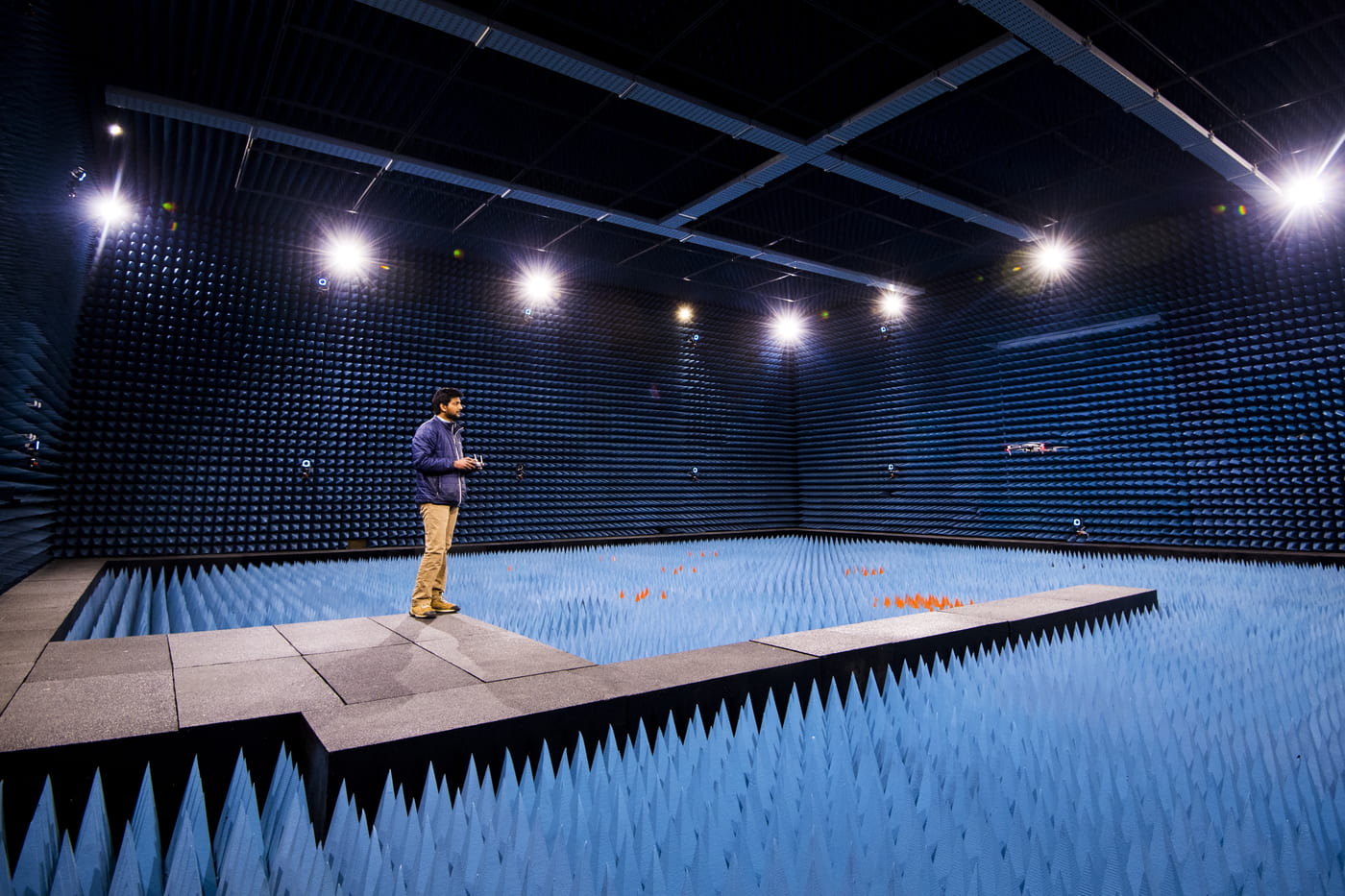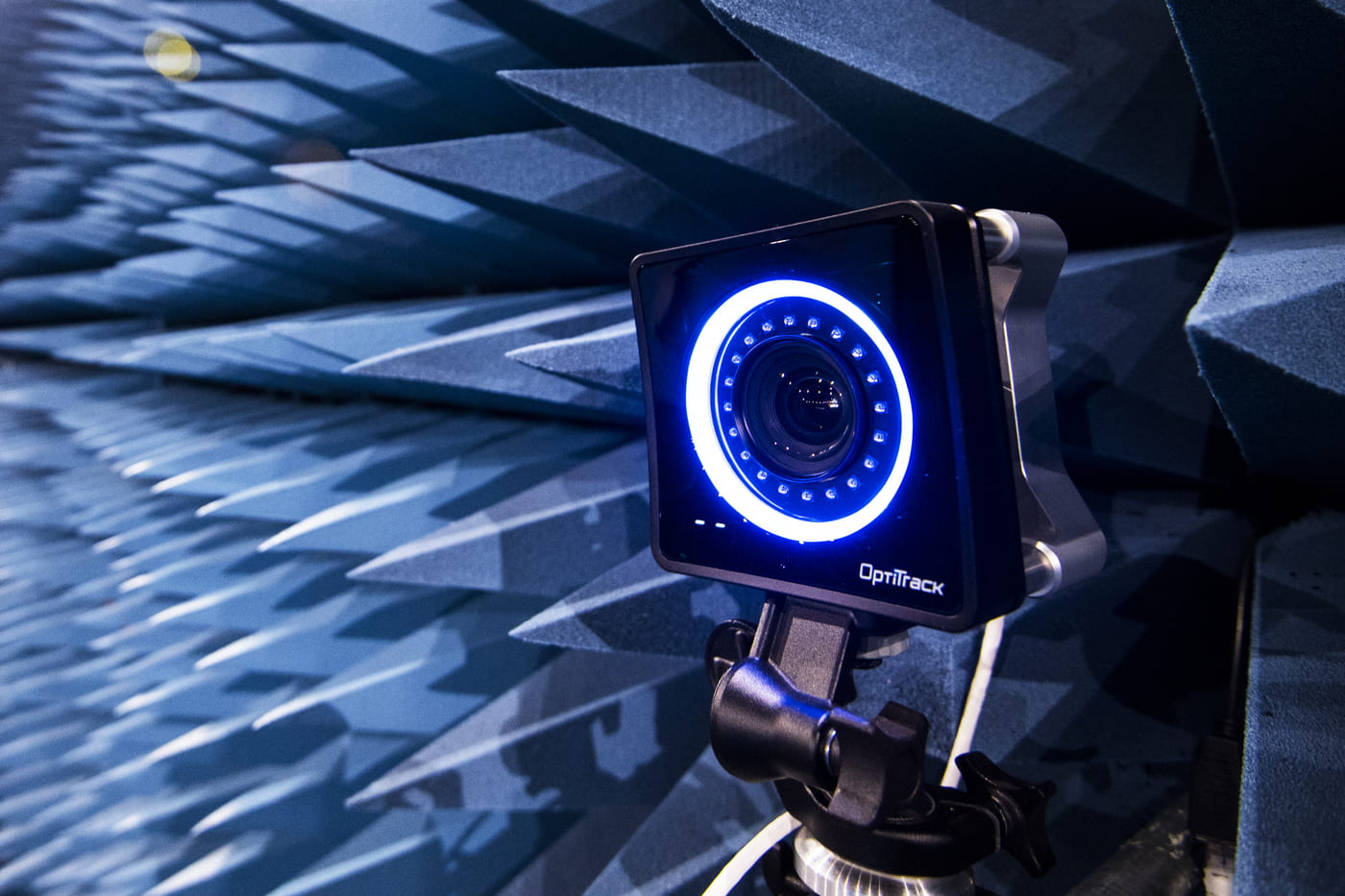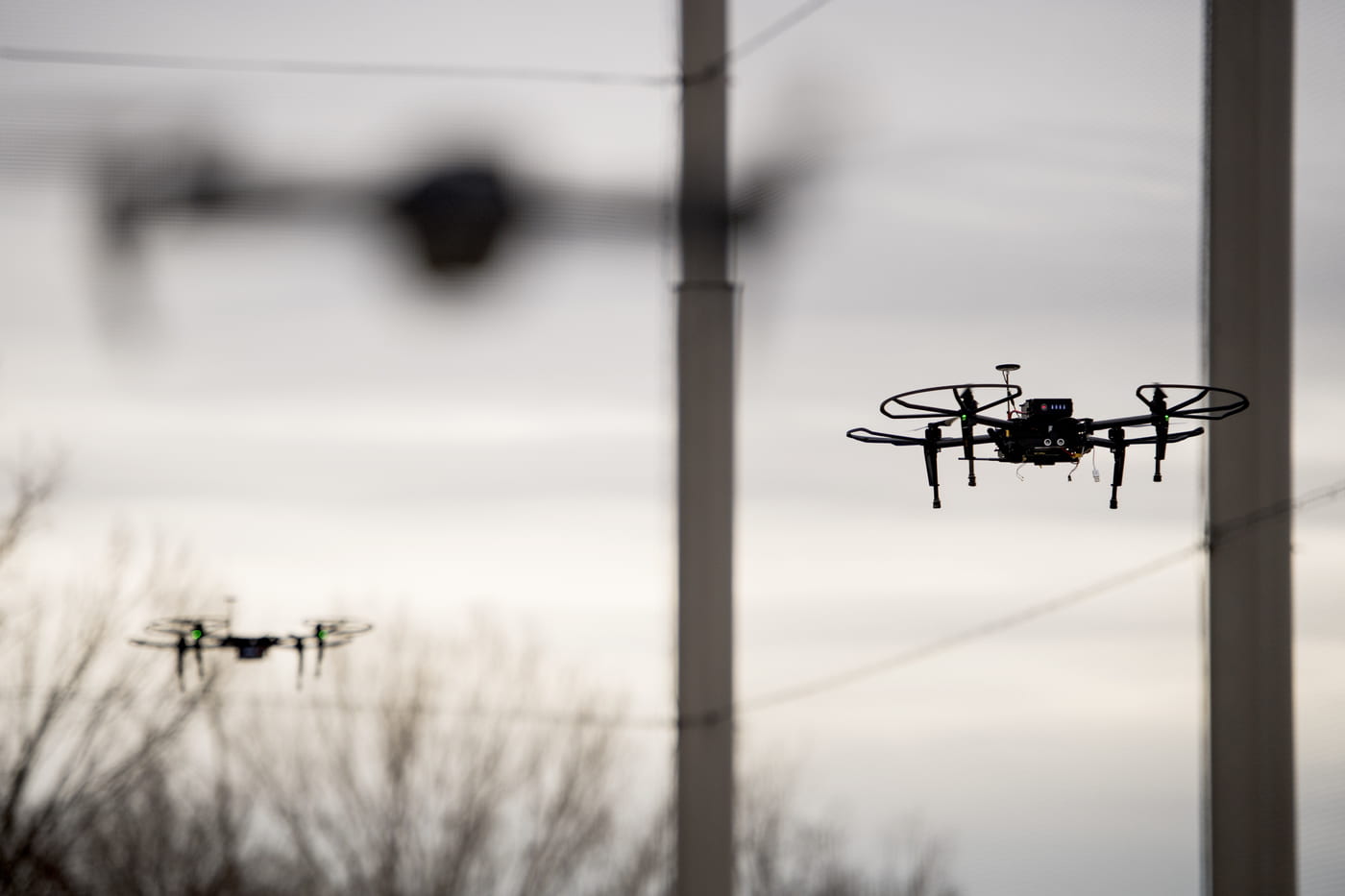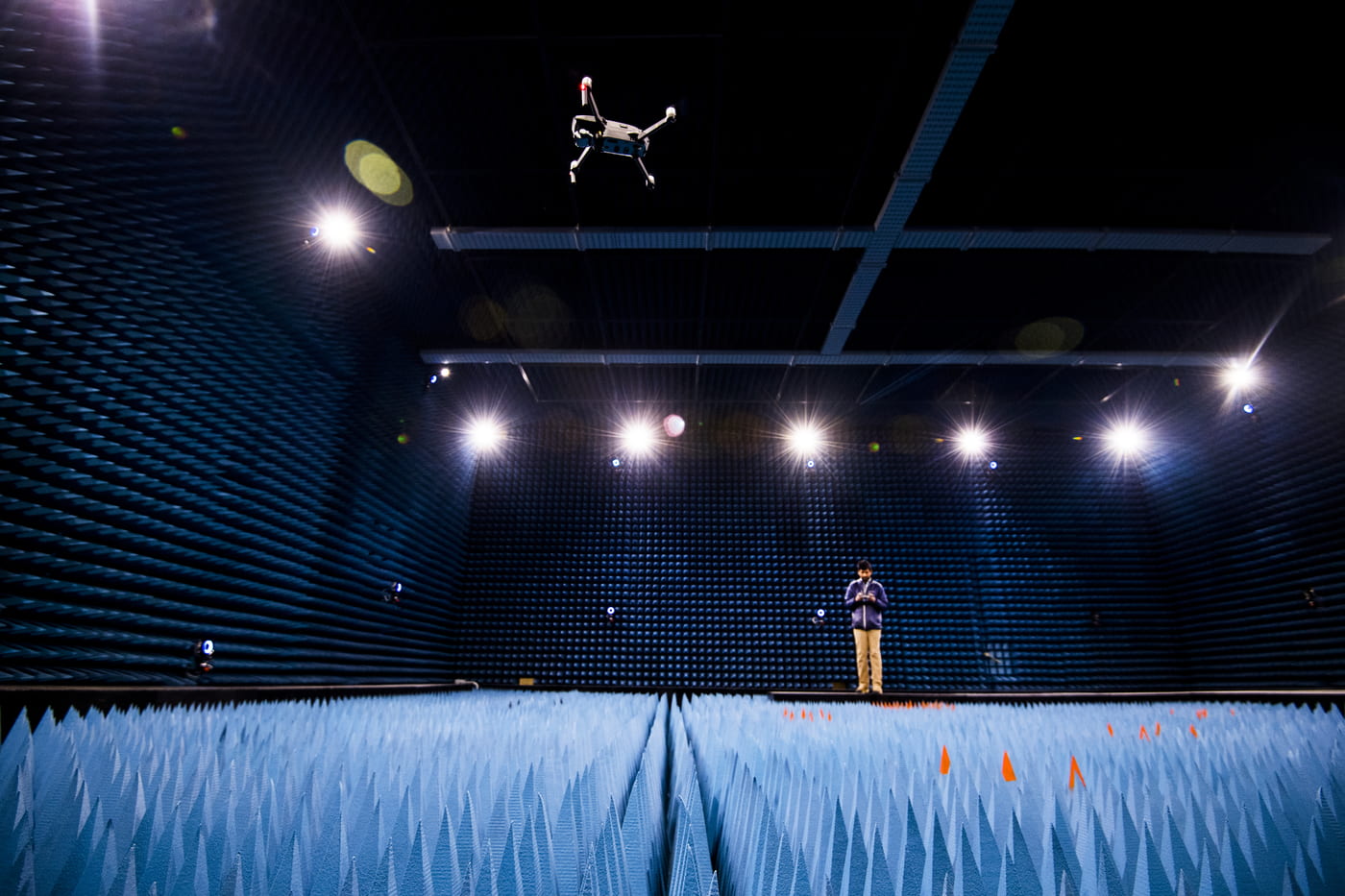Anechoic Chamber

Project Information
Location
Innovation Campus
Burlington, MA
Project Manager
Andraya Lombardi
Square Feet
30,000 sf exterior drone cage
+ 5,700 SF
Architect
Workplace Creations
Contractor
Workplace Creations
Project Description
The Unmanned Aerial Systems (UAS) Lab is located at Northeastern University’s Innovation Campus in Burlington, MA (ICBM) in the south wing of Byron K. Elliott Hall at 147 South Bedford St, Burlington, MA 01803. It’s focal features are a pair of indoor and outdoor drone flying cages connected by a net flight tunnel. The overall indoor/oudoor facility is 35,700 sf.
The 30,000 sf exterior drone cage is enclosed in netting on five sides, has a vehicle access gate and full WiFi coverage. It measures 150’ x 200’ x 60’ H and is connected to the interior cage via a retractable net flight tunnel.



The indoor lab is 5,700 sf feet and contains a 2,300 sf Faraday cage and anechoic chamber that measuring 48’ x 49’ x 20’ H. It is outfitted with a MAPS positioning system on a turn-table recessed into the floor, a portable Electromagnetic Pulse (EMP) Generator, (24) wide-angle motion-capture cameras, an antenna grid backed by a software-defined radio system and an independent WiFi distribution system. The anechoic floor absorber is removal. There are shielded observation windows. One of the three chamber entrances is a fully-automated sliding flight door and another is suitable for entry of drivable equipment. There are two independent work/control spaces for red team / blue team competition. The lab is configurable for secure mode operation, leaving one workspace outside the secure perimeter for continued university use. A secondary IDF room is provided for use of secure clients and all data-connected lab equipment can be rerouted through the client’s networking equipment to cut off access to the internet and define their own networking environment. Two weeks are reserved for each instance of client-to-client conversion, depending on their specific needs.

